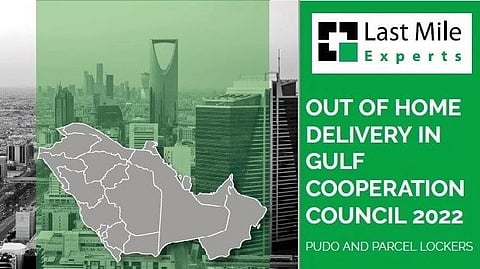Game Changer in the CEP Middle East Market
The Courier-Express-Parcel market in the Middle East region is still immature. In the countries of the Arab Bay, the parcel shipping index is at the level of 12 parcels per person per year.
This much lower than in developed markets, where the leaders record above 60 parcels per person.
The maturity of this market is not the same everywhere. In the United Arab Emirates, the number of shipments per person is close to the levels of the European Union countries. However, this is an exception, and most countries still face rapid volume development.
A predominance of inbound international volumes characterizes the CEP market of the GCC Region countries. It is caused by limited production outside the oil and gas sector, and most goods are imported.
International integrators such as DHL, UPS, and FedEx have a significant market share but primarily compete only in their niche, which is international inbound. Aramex, the only powerful regional player, competes with local CEP companies for domestic markets.
Oman Gets Its First e-Locker Parcel Machine Network
The big question for investors and global integrators is whether it possible to change forces and create new leaders?
Given the current immaturity of the market, its growth driven by the development of e-commerce, and the rapid pace of social and economic changes in the region, a significant change may occur.
An exciting area that has shown in other countries the ability to create new leaders is convenient and easy access to the out-of-home delivery network for e-commerce.
The Polish example shows that a parcel locker operator, InPost, with a share of under 10% of the CEP market in 2017, has become the dominant market leader in 2022, having over a quarter of the market thanks to innovative last mile technology.
A similar situation has happened in Romania, where Sameday Courier, a small carrier, not even in the top 5, has become a strong number two player, mainly due to their dominant locker network.
The OOH networks are just emerging in different business models and with different intensities depending on the country. The number of available collection points in the Gulf region is much below the minimum necessary for this method to be convenient and popular.
Also, several other factors mentioned in the Out-Of-Home in GCC Region 2022 report may have a decisive impact on changes in the positions of market leaders in the coming years.
Read More: Siemens Logistics Introduces New Robotic Parcel Handling Product


